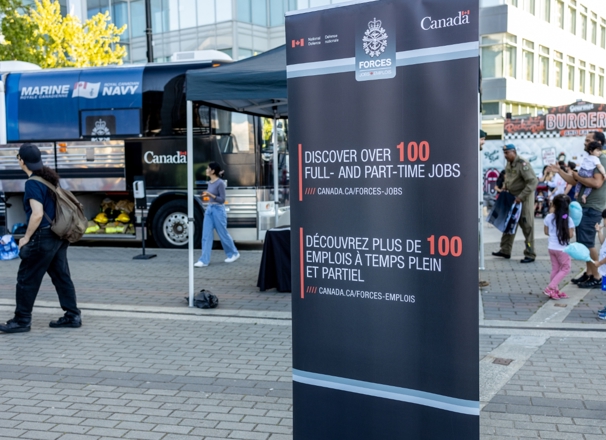You want to learn more about your career options, but you aren’t sure where to start. There are so many options, but only some of them will be the right fit for you based on your interests, values, and abilities.
Getting to know yourself is the first step in the 4-step career planning process. The second step is to explore your occupational options.
Start with a list
Start by making a list of occupations and industry sectors (for example, the transportation or energy sector) that you want to explore. You may already have some options in mind.
Here are some suggestions to help you create or add to your list:
- List your favourite school subjects. Now explore the occupations in Alberta. Use the search filters for “High School Subjects” and “Field of Study” to find occupations suited to your favourite subjects.
- Search the internet for an interest + occupations (for example, enter “horses + occupations”). See what turns up.
- Explore local labour market information.
- Learn some decision-making strategies.
- Learn more about occupations.
Gather more information
Find out as much as you can about the occupations and industry sectors that interest you. This research can help you narrow down or pinpoint the best options. It may even expose you to new opportunities you hadn’t thought about.
Helpful online resources
Here are some resources to help you:
- Go to OCCinfo for complete profiles of more than 550 occupations. You will also find information about Alberta’s post-secondary schools and programs, as well as answers to many of your questions about industries and sectors.
- Check out the occupational videos. They feature real people in real occupations. Each video is about 5 minutes long.
Talk to people
People who work in an occupation or industry that interests you can be great sources for up-to-date information. So can people with specific education or training for that work. By talking to people, you may learn information that’s difficult to find any other way.
Olivia was looking for a summer job that might lead to something full time. She enjoyed volunteering in her school library and thought she might like similar work. As a first step, Olivia asked her librarian about different types of library jobs. She learned that, with her experience and education, she could get a job as a library clerk. To understand the role, she looked up the occupation. She met the requirements, which included a high school diploma, computer skills, and customer service experience. The job duties seemed familiar or like things she could learn. She also found that evening or weekend hours and some light lifting might be required.
She subscribed to a related job alert, applied at a nearby library, and was given an interview. She prepared for it by calling some other libraries in the area and talking with other clerks about their daily work and supervisor’s expectations. Thanks to her research, she was able to speak confidently in her interview about duties like sorting books, helping people find things, and repairing damaged books.
She was also able to ask questions about duties that would be new to her. The interviewer was impressed by her suitability and gave Olivia the job.

Try these suggestions to reach people who can answer your questions:
- Talk to someone at Alberta Supports. Coordinators can answer your questions, tell you about career, education, and employment options, and refer you to other local employment and training services.
- Tell your friends, family, teachers, and co-workers what you’re looking for. Ask if they know someone who might be willing to chat about their experience.
- Network to find out more about your career options. If you know people who do work that interests you, ask them about their work and other similar types of work. Also ask them to refer you to other people they know.
- Set up an informational interview. Contact people who are working or studying in your area of interest. Ask if you can call them on the phone or meet in person to talk about how they got to where they are. They’ll be more likely to open up to your questions when you’re face to face. Ask the people you interview for other contacts.
Ask probing questions
Whether you’re doing research online or speaking to individuals directly, get curious about the occupations you might be interested in. To help focus your efforts, make a list of the questions you want answered. The answers will help inform your decisions. Here are some ideas to help get you started.
Work activities and conditions
- What are the day-to-day activities, duties, and responsibilities in this line of work?
- What are the typical working conditions? For example, is it outdoor or indoor?
- What are the hours of work?
- Is travel or overtime required?
- What are the health hazards?
Skills and traits
- What core skills do you need for this work?
- What work-specific skills do you need?
- What personal traits do you need?
Education and training
- What type of education do you need? For example, do you need high school or post-secondary training? Is an apprenticeship required?
- Do you need a specific licence, certificate, degree, or diploma to do this type of work?
- What training do most people in this type of work have? For example, were they trained on the job? Or did they graduate from a specific type of training program?
- Which training programs are most respected by employers in the field?
- If graduation from a training program is required, where is this training offered? How long does the training take to complete? How much does it cost?
Other requirements
- Does the work have any special physical requirements? For example, will you need to be able to lift heavy objects?
- Does the work have any legal requirements? For example, will you need a specific class of driver’s licence?
- Does the work have social requirements? For example, will you have to entertain clients in the evenings or on weekends?
Pay, benefits, and career prospects
- What is the typical pay range for this type of work? What do inexperienced workers make? How will your pay change as you gain experience?
- What other benefits are typically offered?
- What are the chances for career development and advancement?
- What are the future job prospects? Is there demand for this type of work?
- How will this work be impacted by emerging workplace trends?
- How will changes in technology and society affect this type of work? Will it still be needed in 5 years? In 10 years?
Get hands-on experience
Sometimes hands-on experience is the best way to find out if a particular occupation is a good fit for you. Look for opportunities to try out a job. This way you will see first-hand if your interests, values, and abilities line up well with the work you have in mind. You could:
- Take a tour. Maybe you know someone who can arrange for you to visit a job site to get a sense of the workplace.
- Arrange to job shadow. This means being with someone at their job for a day (or a half-day) to see what they do and what it’s like. This is a good way to find out not only what the work involves but what the work environment is like.
- Volunteer. For example, if you might be interested in becoming a teacher, maybe you can offer to tutor newcomers to Alberta in English. Or you could work with younger kids as a volunteer sports coach.
- Take a non-credit course through your local school board or at a post-secondary school. This can give you the chance to study an occupation or industry. It can also help you find more contacts and information.
- Take an entry-level job in an organization related to your interests. It could give you valuable insight into how things work. Beyond giving you a foot in the door if you want to stay, it can expand your network of related contacts.
In these videos, look for the various ways that Demi, Jason, and Lindsay research the careers they’re interested in:
Exploring Career Paths: Pediatrics (3:00)
Demi is interested in pursuing a career as a pediatrician, a type of specialist physician. Through volunteering and job shadowing, she discovers how important it is to have an interest in science and enjoy working with children.
Exploring Career Paths: Law Enforcement (3:32)
Jason wants to pursue a career in law enforcement. He's volunteering with the police service to learn more about the skills involved in becoming a police officer and how they make a difference in the community.
Exploring Career Paths: Combining Arts and Sciences (3:30)
Lindsay is interested in pursuing a career that combines both arts and science. She's leaning toward anaplastology, a type of specialized medicine. Watch as she uses techniques like volunteering and job shadowing to explore her unique combination of interests.
If you found their stories helpful, you can watch more videos about students exploring career paths.
What options do you see for yourself so far?
Now that you have researched some occupations and thought about how your values and interests fit in, which options seem the most promising? The next step will be to make some decisions so you can narrow your focus and start making a plan.















